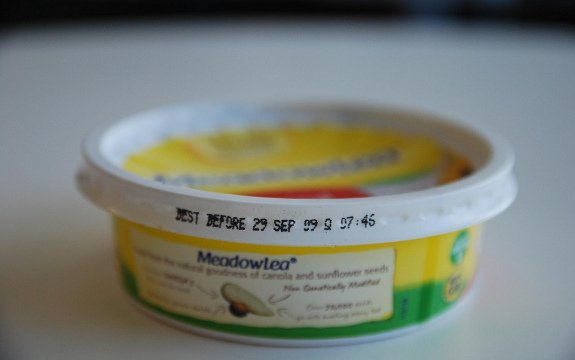EU Moves to Eliminate Many Food Label Expiration Dates

 Do you throw away foods after they have reached their “best by” date, or do you look, sniff, taste, and otherwise investigate the potentially wasted goods before trashing them. It’s the former crowd who is likely having a more significantly negative impact on the 133 billion pounds of food wasted annually in the U.S. alone, but this waste is often completely unnecessary.
Do you throw away foods after they have reached their “best by” date, or do you look, sniff, taste, and otherwise investigate the potentially wasted goods before trashing them. It’s the former crowd who is likely having a more significantly negative impact on the 133 billion pounds of food wasted annually in the U.S. alone, but this waste is often completely unnecessary.
In the European Union, the problem is similar, but officials are hoping to change that. A report from Waste & Resources Action Programme (WRAP), a non-profit organization focused on reducing food waste, has motivated the EU to present a discussion paper to agricultural ministers, calling for the lifting of a requirement that mandates “best by” dating on foods with long shelf-lives.
Ideally, the move would change labels on foods like coffee, rice, pickles, jams, and dry pastas—foods that can last for years if handled appropriately. If so, the labeling change could lead to 15 million tons of food saved annually.
The research concludes that:
- There is potential for changes in date labeling and storage guidance to make a positive contribution towards the goal of reducing avoidable food waste.
- Further and continued effort to promote improved food management skills will be an essential component of maximising the effectiveness of any labelling changes.
“We think citizens can make sure themselves if, for instance, rice is still usable,” said Dutch agricultural minister Sharon Dijksma.
As EcoWatch reports, a similar paper was submitted in the U.S. last year by the Natural Resources Defense Council (NRDC). As of yet, however, there’s been no progress on label dates here.
EcoWatch explains that there are several dates consumers will see on U.S. foods, and they don’t all mean the same thing:
- Sell-By: Tells the store how long to display the product for sale. You should buy, cook or freeze the product before the date passes.
- Best If Used By (or Before): The recommended date for best flavor or quality. It is not a purchase or safety date.
- Use-By: The last date recommended for the use of the product while at peak quality. The date has been determined by the manufacturer of the product and usually refers to best quality, not safety.
- Closed or coded dates: Packing numbers for use by the manufacturer.
Food safety should be a top concern, but it sometimes seems as if the food dating systems make food purchasing more of a priority, encouraging consumers and sellers to pitch foods that are still safe to eat.
